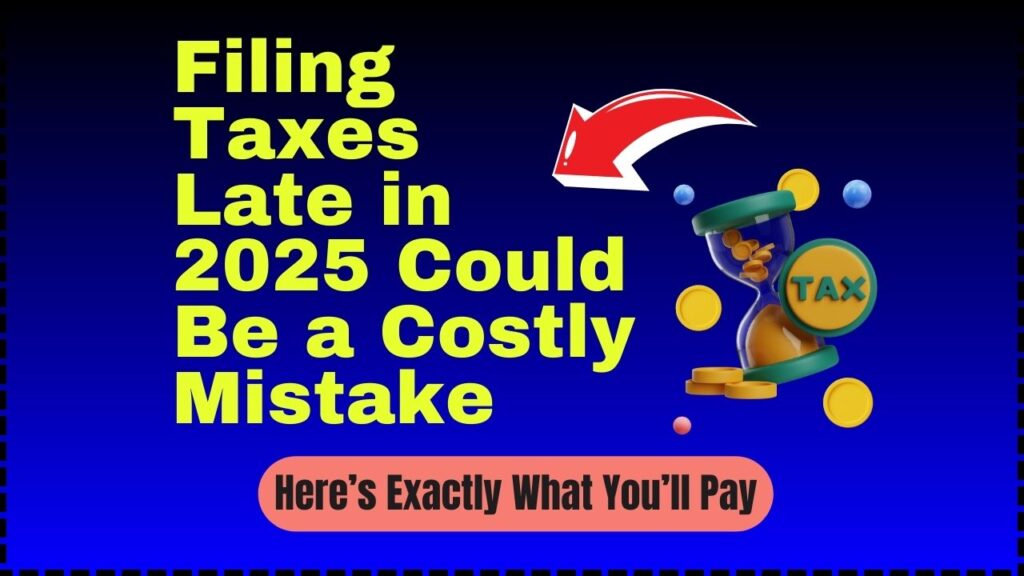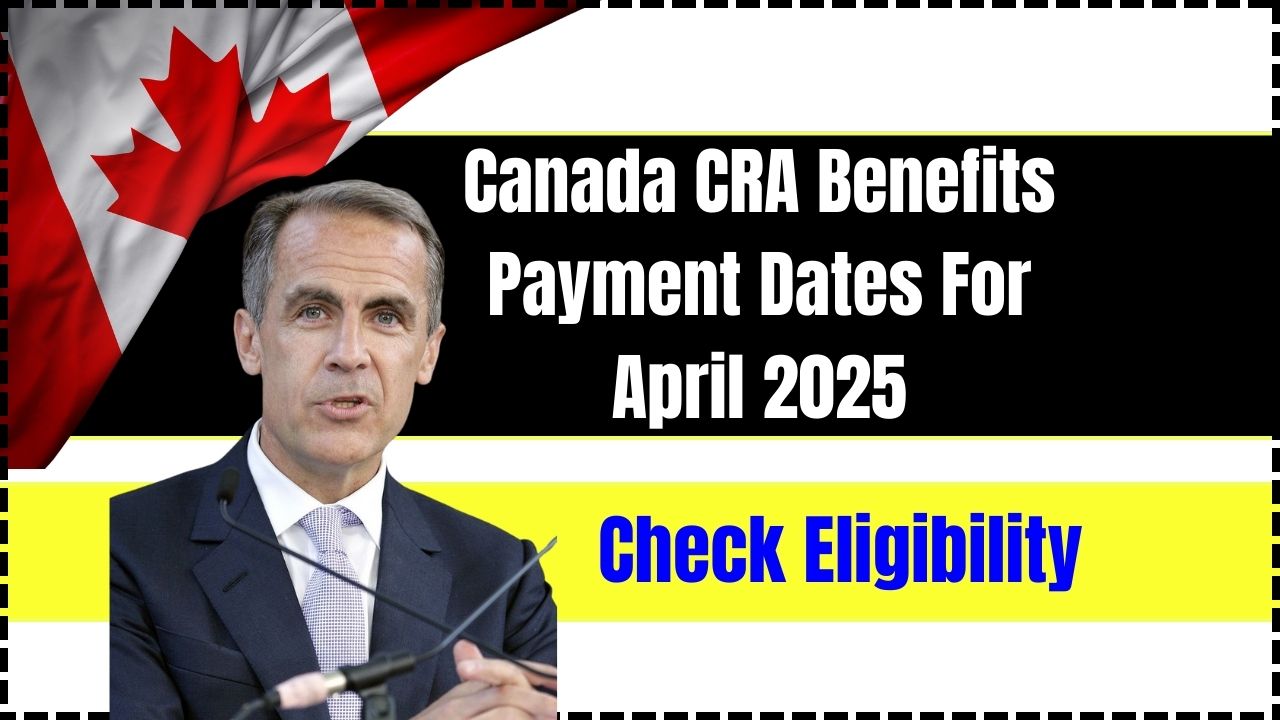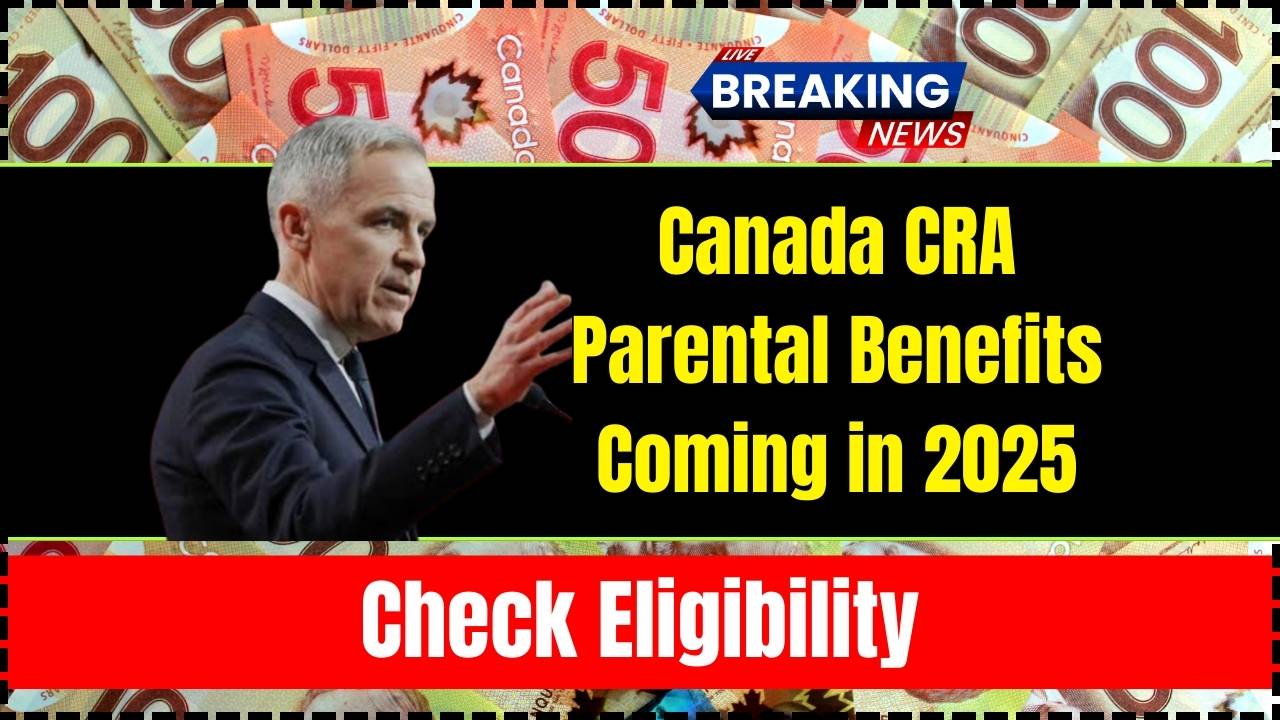
Filing Taxes Late in 2025 Could Be a Costly Mistake: Filing your federal income tax return late in 2025 could cost you far more than just peace of mind. The IRS imposes penalties, interest, and even long-term consequences for taxpayers who fail to meet the annual filing deadline. Whether you’re a salaried employee, freelancer, small business owner, or high-net-worth individual, it’s crucial to understand how late filing or late payment can hurt your finances. In this comprehensive guide, we’ll walk you through what happens if you file taxes late in 2025, what you’ll owe in penalties and interest, how to avoid them, and how to catch up if you’ve already missed the deadline.
Filing Taxes Late in 2025 Could Be a Costly Mistake
Filing your taxes late in 2025 isn’t just a minor inconvenience—it can have serious financial consequences. Between penalties for late filing and late payment, and the compounding interest charged daily, you could owe thousands more than your original tax bill. The key is to act quickly. If you’ve missed the deadline, file your return as soon as possible and pay what you can. The IRS offers flexible payment plans and penalty relief options for those who qualify. But ultimately, the best way to avoid problems is to file on time and pay in full. Don’t let a missed deadline turn into a year-long financial headache.
| Aspect | Details |
|---|---|
| Federal Tax Filing Deadline | April 15, 2025 |
| Filing Extension Deadline | October 15, 2025 (must request by April 15) |
| Late Filing Penalty | 5% of unpaid tax/month, max 25% |
| Late Payment Penalty | 0.5% of unpaid tax/month, max 25% |
| Minimum Penalty for >60 Days Late | $510 or 100% of tax due, whichever is less |
| Interest on Unpaid Tax | ~7% annually, compounded daily |
| IRS Payment Plans | Form 9465 for monthly installment agreements |
| Official Website | irs.gov |
Understanding the IRS Late Filing and Payment Penalties
1. Late Filing Penalty: 5% Per Month
If you don’t file your federal tax return by April 15, 2025, the IRS will charge you 5% of your unpaid taxes for each month (or part of a month) your return is late. This penalty can grow up to 25% of your unpaid taxes.
Example: If you owe $3,000 and file your return 4 months late, you’ll owe $600 in late filing penalties (5% × $3,000 × 4).
If your return is over 60 days late, the IRS imposes a minimum penalty of $510 or 100% of the unpaid tax, whichever is less.
2. Late Payment Penalty: 0.5% Per Month
If you file your return on time but don’t pay what you owe by the deadline, you’ll be charged 0.5% of the unpaid tax per month. This penalty also maxes out at 25%.
Example: Owe $3,000 and pay it 4 months late? You’ll incur $60 in late payment penalties (0.5% × $3,000 × 4).
If you’re subject to both penalties in the same month, the maximum total penalty is capped at 5%.
3. Interest Charges: Compounded Daily
On top of penalties, you’ll also owe interest on your unpaid tax balance. As of Q2 2025, the IRS interest rate is 7% annually, compounded daily. This rate adjusts quarterly and can vary.
What Happens If You Don’t File at All?
Ignoring your tax obligations entirely could lead to much worse consequences than just penalties:
- Substitute for Return (SFR): The IRS can file a return on your behalf, often overestimating your tax by excluding deductions or credits.
- Wage Garnishment & Bank Levies: The IRS can seize assets, garnish wages, or levy bank accounts.
- Tax Liens: A federal tax lien may be placed on your property or credit report.
- Legal Action: Willful failure to file can lead to criminal prosecution, fines, or even jail time.
How to Filing Taxes Late in 2025?
If you’ve missed the deadline, here’s how to file your return ASAP and minimize damage:
- Visit IRS.gov and log into your IRS account.
- Use Free File or tax software to prepare your return, or work with a certified tax preparer.
- Submit Form 4868 if before April 15 to request an automatic 6-month extension (deadline October 15, 2025).
- File your tax return as soon as possible—even if you can’t pay.
- Pay as much as you can upfront to reduce penalties and interest.
- Apply for an IRS Payment Plan using Form 9465.
Avoiding or Reducing Penalties: Your Options
A. IRS Payment Plans
If you can’t pay your entire tax bill, apply for an Installment Agreement. This allows you to pay monthly while avoiding aggressive collection actions.
B. Offer in Compromise (OIC)
If you’re experiencing financial hardship, you may qualify for a reduced settlement through an Offer in Compromise. This allows you to settle your tax debt for less than the full amount owed.
C. Penalty Abatement for Reasonable Cause
If your late filing was due to circumstances beyond your control—like a natural disaster, illness, or family emergency—you can request penalty relief.
You’ll need to provide documentation and a written explanation when requesting relief.
$8,046 EITC Refund Alert: Who Qualifies and When to Expect Payment
$500 Direct Payments Coming in April 2025 – Only these eligible people will get it? Date
Final $1400 Stimulus Checks from IRS – How to get it? Check Eligibility & Date
FAQs About Filing Taxes Late in 2025 Could Be a Costly Mistake
1. What happens if I miss the April 15 deadline but I’m owed a refund?
Good news! If you’re owed a refund, there’s no penalty for filing late. However, you must file within three years to claim it.
2. Can I get an extension to pay my taxes?
No. Filing an extension with Form 4868 only gives you extra time to file your return—not to pay. All taxes are still due by April 15, 2025.
3. Is the IRS accepting late returns from previous years?
Yes. You can file returns for prior years, especially if you’re owed a refund or want to avoid enforcement action.
4. How long will it take to receive my refund if I file late?
Typically, late refunds are processed in 21 days if filed electronically and with direct deposit, but delays may occur.
5. Will filing late affect my credit score?
Not directly. The IRS doesn’t report to credit bureaus, but tax liens, levies, or third-party collections resulting from unpaid taxes could show up.






